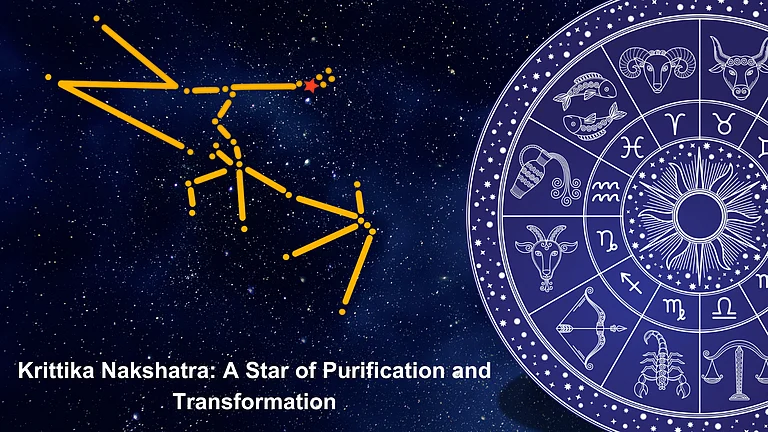While the majority of India worships Goddess Lakshmi during Deepawali, West Bengal's devotion to Goddess Kali gives the celebration a special meaning. Kali Puja, also known as Shyama Puja, is celebrated with great reverence and enthusiasm in Bengal, and the reasons for this divergence lie in the region's cultural, spiritual, and mythological traditions.
Kali Puja: Why Bengalis Worship Maa Kali On Deepawali?
Know why Bengalis worship Goddess Kali on Deepawali instead of Goddess Lakshmi, celebrating her fierce power to conquer darkness and bring spiritual strength.
The Origin of Kali Puja in Bengal:
The origin of Kali Puja in Bengal can be found in the 16th century when it is thought that Raja Krishnachandra of Navadvipa was the first to formally celebrate Kali Puja during Deepawali. There is a close link between the rise of Kali worship in Bengal and the strong Tantric beliefs that have been there for a long time. The fierce embodiment of Goddess Durga, Goddess Kali, is for making good things stronger and getting rid of bad things.
The festival aligns with Amavasya, the new moon night, which is considered a perfect occasion to honour the Goddess. It is believed that Kali’s powerful energy can eliminate the darkness of ignorance, evil, and sin.
Why Kali is worshipped on Diwali?
Lakshmi embodies the concepts of wealth and prosperity, whereas Kali represents the essence of power, destruction, and transformation. The two gods represent two distinct parts of the same cosmic power. The adoration of Kali during Deepawali can be comprehended through various lenses, encompassing cultural, spiritual, and mythological aspects.
1. The Symbol of Fearlessness and Strength:
The goddess Kali is associated with the qualities of power, bravery, and fearlessness. When it comes to a region that is marked by dramatic conflicts, societal upheavals, and environmental disasters, the essence of Kali represents victory over dread and calamity. On top of Lord Shiva, Kaali Mata's scary face represents the destruction of ego and bad things.
2. Spiritual Practices and the Tantric Tradition:
Bengalis worship Kali because of Tantric customs, which stress the importance of spiritual practices to rise above the material world and achieve spiritual freedom (moksha). Kali is esteemed as the sacred entity that aids devotees in reaching this profound state of enlightenment during Deepawali. a period when the night sky is enveloped in darkness, the significance of Kali as the illuminator of ignorance and spiritual invisibility is honoured.
It is generally acclaimed that Deepawali or Diwali in Bengal, becomes not just a celebration of wealth and prosperity, just like the Lakshmi Puja in other parts of India but it also a celebration of spiritual awakening and empowerment.
3. The Mythological Context: The Slaying of Demons:
As per Hindu mythology, Goddess Kali came out from Goddess Durga to destroy monsters like Shumbha-Nishumbha and Raktabija that were wreaking devastation on the universe. People believe that this event, which shows that light won over darkness and good over evil, should be remembered on the day of Kali Puja.
The duality of Kali's destructive and benevolent nature resonates with the mythological significance of Deepawali, a celebration of how light beats darkness.
In Bengal, Kali Puja is celebrated with an elegance similar to Durga Puja.
One thing that makes Kali Puja unique is that it is done at midnight on Amavasya. People believe that the darkness of the new moon is the best time to call on Kali because she is thought to have the power to drive away all kinds of evil and darkness. Unlike Lakshmi Puja, where offerings typically include sweets and fruits, Kali Puja often involves offerings of meat, fish, rice, and red hibiscus flowers, which are considered auspicious to the goddess. In the past, people also sacrificed animals, though this is not done as much these days. All night long, people who worship Goddess Kali say mantras and sing bhajans. Tantric practitioners may also do certain practices to ask the goddess to bless them with success in both spiritual and material matters.
In Bengal, the lighting of lamps or diyas, a key aspect of Deepawali celebrations, is observed alongside the intense nature of Kali Puja. Diyas are strategically positioned in homes and temples to attract the goddess’s blessings and eliminate the darkness associated with ignorance. The idol of Maa Kali is a symbol of the intricate relationship between creation and destruction, life and death. For Bengal's rich cultural heritage, she is both a symbol of fear and a mother figure, worshipped and beloved for her protective nature. She is viewed by the Bengali people as a goddess who personifies the ferocious and nurturing facets of the divine feminine.
While the majority of India celebrates Deepawali as a time to welcome Goddess Lakshmi, Bengal places more emphasis on Kali's ferocious aspect. The area's deep spiritual connection to Kali, symbolising courage, the destruction of enmity, and the transformative essence of the divine, is evident in the admiration shown to the goddess during Deepawali. Bengalis worship Kali to honour not only the wealth symbolised by Lakshmi but also the spiritual strength and perseverance needed to face life's challenges.

